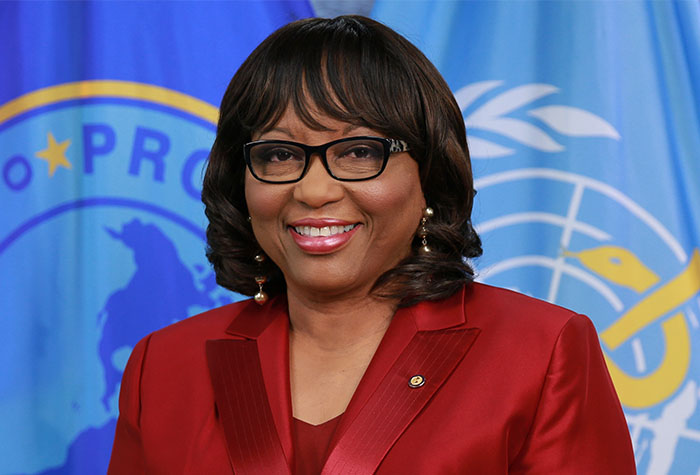PAHO Working With Member States To Deal With COVID-19 Challenges
By: , June 10, 2020The Full Story
Pan American Health Organization (PAHO) Director, Dr. Carissa Etienne, says the entity is working with member countries to bolster their preparedness to effectively deal with potential challenges from the coronavirus (COVID-19) outbreak across the Americas.
This focus is particularly significant during the upcoming seasonal weather conditions and onset of respiratory illnesses.
Dr. Etienne said this intervention includes securing 24 million doses of influenza vaccines and providing guidelines for emergency shelter management.
She was speaking during PAHO’s COVID-19 digital media briefing on Tuesday (June 9).
The Director said the arrival of winter in South America, coupled with the onset of respiratory illnesses, such as seasonal influenza and pneumonia, will impact the entity’s response to the pandemic.
Additionally, she argued that the tropical Atlantic hurricane season, which runs from June 1 to November 30, “will complicate our efforts in North and Central America, and especially in the Caribbean”.
Noting that there is no data suggesting that temperature and humidity influences the virus’ spread, Dr. Etienne said “we do know that winter fuels respiratory infections like seasonal influenza and pneumonia”.
The Director said this poses a problem for patients, “because respiratory illnesses leave them at greater risk of severe COVID-19 infection”.
Additionally, she said this is also a challenge for health systems that will have to cope with the “dual burden” of a coronavirus pandemic and a spike in other respiratory illnesses.
“It would not help that the similar symptoms [characterising influenza and pneumonia] will make diagnosing COVID-19 even harder,” Dr. Etienne pointed out.
Against this background, she said that as countries strengthen surveillance for COVID-19, “they must simultaneously monitor influenza cases”.
“Early vaccination to prevent severe cases of flu is more critical than ever, particularly for high-risk groups like health workers, the elderly, and people with conditions. These same groups are also at high risk of coronavirus infection,” the Director emphasised.
She said PAHO has encouraged countries to adopt seasonal flu vaccination campaigns to fit current physical distancing measures, noting that many territories have embraced this approach and introduced innovative methods of immunisation that minimise the risk of COVID-19.
These include offering vaccines outside of health facilities, at pharmacies or drive-through corridors at supermarkets.
Dr. Etienne informed that PAHO, through its revolving fund, secured the 24 million flu vaccine doses, “virtually all of which have already been delivered to countries conducting campaigns”.
She also assured countries in the hurricane belt that “PAHO will be ready to support you in the event of an emergency”.
“We are working to provide emergency response supplies throughout our region and to secure critical facilities like laboratories and quarantine and isolation centres, so that diagnosis and treatment for COVID-19 can continue, even under difficult circumstances,” the Director informed.
Dr. Etienne emphasised that preparing for winter and hurricane seasons is critical to the region’s collective “laser-focused” efforts to contain COVID-19.
She noted that the Americas has more than 3.3 million confirmed cases as at June 8, “more than any other region around the world”, and amounting to “nearly half of all COVID-19 cases [globally]”.
In light of this, she said it is imperative that citizens of the region “take action to safeguard our progress and mitigate the spread of the virus during this time”.
“This means redoubling our efforts to control the spread of COVID-19, so that we reduce the dual burden which the approaching winter and hurricane seasons might bring. It also means strengthening health infrastructure by hiring staff and expanding reserves of essential supplies and protective equipment,” Dr. Etienne said.


